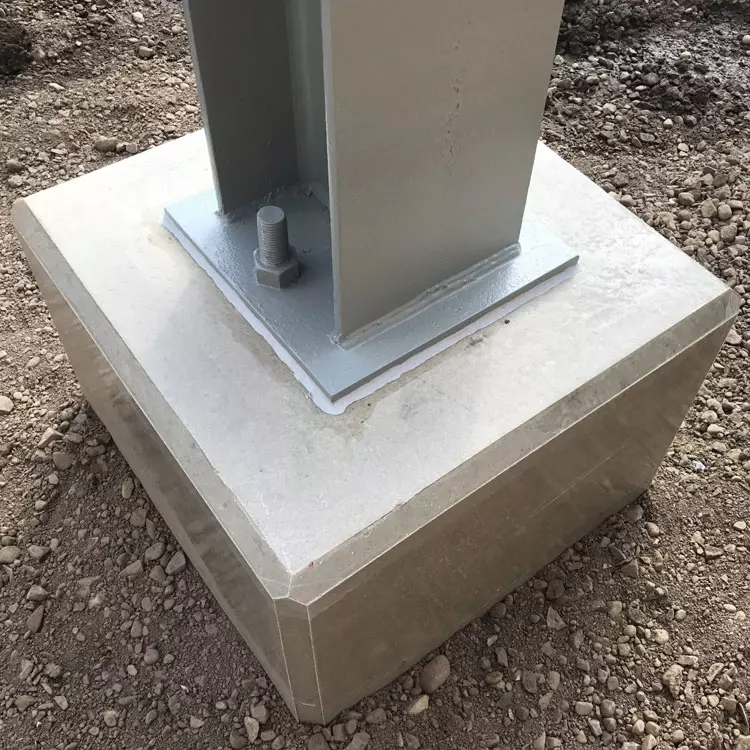Reinforced vinyl ester and epoxy resins

In this article, we discuss vinyl ester and reinforced epoxy resins. To buy and know the price of super lubricant, tile adhesive, anti-acid mortar, rebar planting adhesive, concrete restorer, epoxy and antifreeze grout, etc., you can contact Shimi Abadgaran Company. Call.
فهرست مطالب
- 1 Reinforced vinyl ester and epoxy resins
- 2 Ceramic and metal composites
- 3 The need to reduce heat loss through insulation of building walls
- 4 What is basalt?
- 5 What is its property?
- 6 Use of materials with low thermal conductivity
- 7 Research on the strength of reinforced vinyl ester and epoxy resins
- 8 2. Materials and methods
- 9 2.1. Materials
- 10 2.2.1. Mechanical properties
- 11 The static bending strength test was performed using the following:
- 12 The static tensile strength test was performed using the following:
- 13 Purchase and price of super lubricant, tile adhesive, anti-acid mortar, rebar planting adhesive, concrete restorer, epoxy grout and antifreeze company Shimi Abadgaran
- 14 the address of Central office
- 15 Address of Shahriar factory
Reinforced vinyl ester and epoxy resins
In the modern construction industry, the use of composite materials based on fiber-reinforced resins is increasing. As a result of chemical resistance, low thermal conductivity, good resistance parameters and low production costs, composites compete with traditional building materials such as steel and aluminum. Reinforcing bars produced based on epoxy resins and reinforced with basalt fibers or thermal consoles to stabilize aluminum facade structures made of epoxy composites reinforced with glass fibers are only examples of these applications.
Ceramic and metal composites
For this purpose, ceramic and metal composites have been designed and manufactured. Since they show low thermal conductivity and high strength, they are used to make new types of fasteners. Most importantly, they showed better structural service reliability compared to traditional fasteners.
Another interesting application of composite materials in load-bearing structures is epoxy fasteners for precast reinforced concrete wall panels, which connect the reinforced height layers separated by a thermal insulation layer to the reinforced panel construction layers. also connects
The need to reduce heat loss through insulation of building walls
The need to reduce heat loss is met by insulating the building walls with thicker thermal insulation layers. Traditional fasteners and consoles made of steel and aluminum pierce thermal insulation layers and cause severe thermal bridges. Such thermal bridges may lead to significant energy losses in building heating/cooling management. Therefore, modern solutions for walls with coatings that penetrate thermal insulation layers seek technologies that reduce energy losses in buildings.
One of these solutions may be the use of vinyl ester and epoxy resins reinforced with basalt textiles in the production of anchors dedicated to the stabilization of ventilated facades of buildings, since resins are characterized by lower thermal conductivity than metal anchors. . For example, vinyl ester resins have thermal conductivity coefficients λ of up to 0.3 W/mK, while aluminum is about 200 W/mK.
What is basalt?
Basalt is a natural material of volcanic rock and as a powder it is mainly used in construction or highway engineering. Basalt, after melting at a temperature of 1300 to 1700 degrees Celsius, can be converted into fibers. It can be used as an efficient reinforcement for polymers in the form of powders, fibers, textiles and wool.
What is its property?
Due to its thermal and sound insulation properties, it has been used in various technical applications, for example, in the automotive, construction and building sectors. A wide range of possible applications is due to its beneficial properties. Automobiles, airplanes, ships, and household appliances are also made with basalt fiber-reinforced thermoplastic resins. Possible techniques include direct pressure autoclaving, layout, prepreg fabrication, molding, and vacuum winding.
Use of materials with low thermal conductivity
In the building industry, the use of materials with low thermal conductivity, such as vinyl ester and epoxy resins, allows for a significant reduction in point thermal bridges in ventilated facades, or can even eliminate them completely. However, the basic criterion related to the selection of materials for external wall cladding is the resistance parameters. External wall cladding anchors are subjected to tensile, compressive and bending stresses under different weather conditions. In the climate of Central Europe, exterior walls may face thermal stresses in the temperature range of -25 to 80°C.
Research on the strength of reinforced vinyl ester and epoxy resins
This paper presents the results of research on the strength of vinyl ester and epoxy resins reinforced with basalt textiles for the production of insulating building fasteners as an alternative solution to the anchoring of traditional cladding of external stone walls. Heavy stone cladding requires an extremely dense system of anchors due to the need for their individual stabilization. The main solution presented in this work on anchors based on vinyl ester and epoxy resin reinforced with basaltic textiles can save significant energy by reducing the thermal bridges created in the places of piercing the insulation layer caused by the installation Provide traditional steel anchors in heated buildings.
2. Materials and methods
2.1. Materials
During the experimental work, measurements of the mechanical and functional properties of the produced composites were performed: Vinyl ester/basalt resin and epoxy/basalt resin. The description of the measurement conditions is divided into sections related to mechanical and functional properties.
2.2.1. Mechanical properties
The static bending strength test was performed using the following:
- –
-
Zwick Roell Z005 static material testing machine, following the PN ISO 178 standard, according to which connections with dimensions of 80 x 10 x 4 mm are subjected to a three-point bending test at 20 °C, 25 °C and 80 °C
The static tensile strength test was performed using the following:
- –
-
Static material testing machine Zwick 1445 (Ulm, Germany) according to the norm PN-EN ISO 527-2, in which 80 × 10 × 4 mm joints were stretched at -20 °C, 25 °C and 80 °C.
Toughness studies were performed through the Charpy impact test using a WPM Werkstoffprüfsysteme Leipzig (Markkleeberg, Germany) hammer according to the PN-EN ISO 179-1 standard. In the test, joints with dimensions of 100 × 10 × 5 mm and a notch of 2 mm experienced dynamic failure at room temperature.
Read more: Epoxy rebar planting glue

